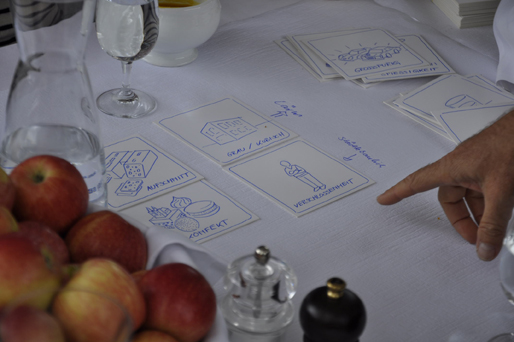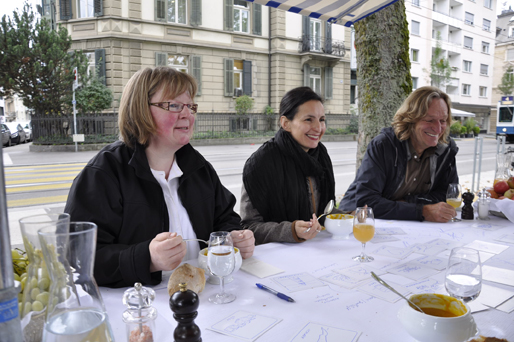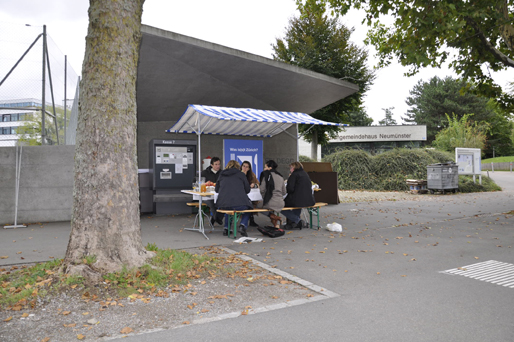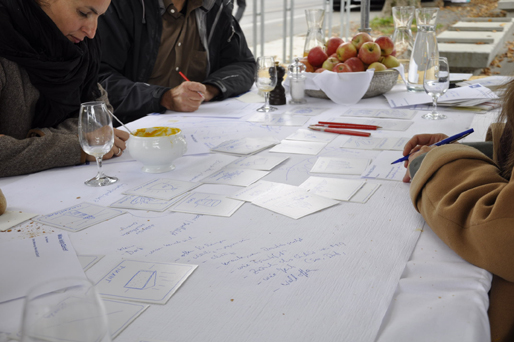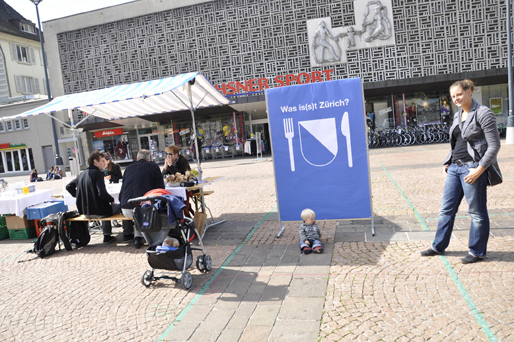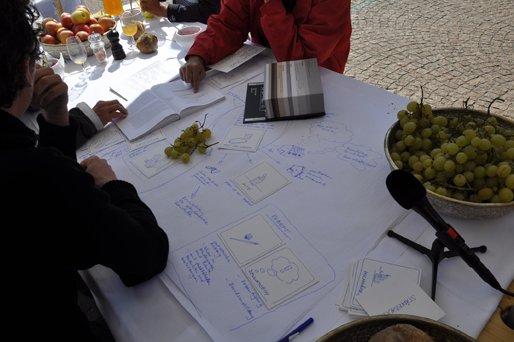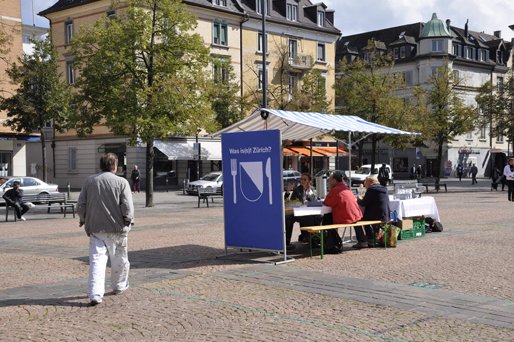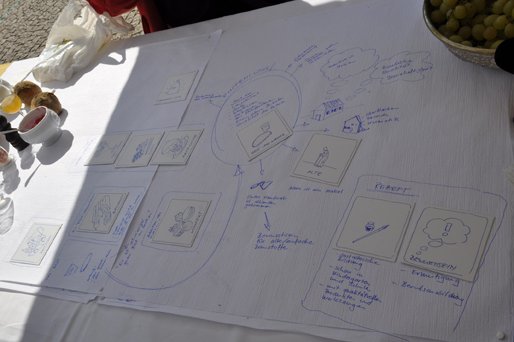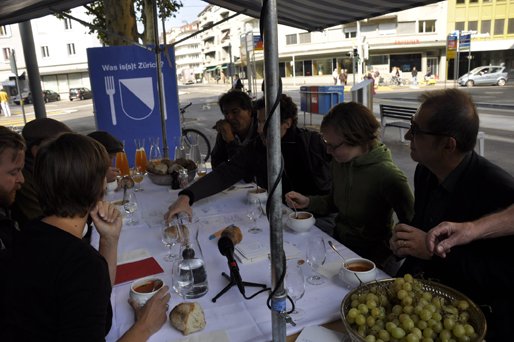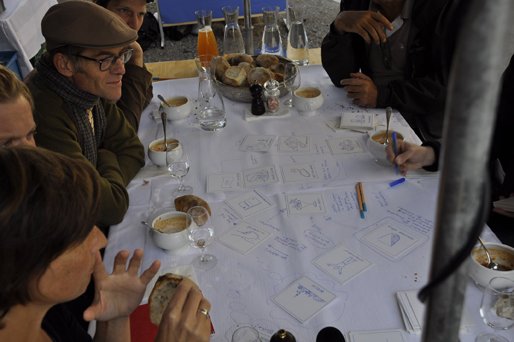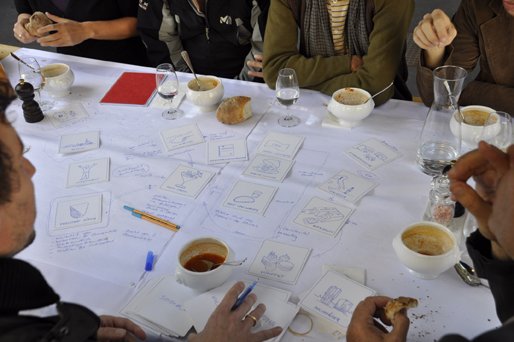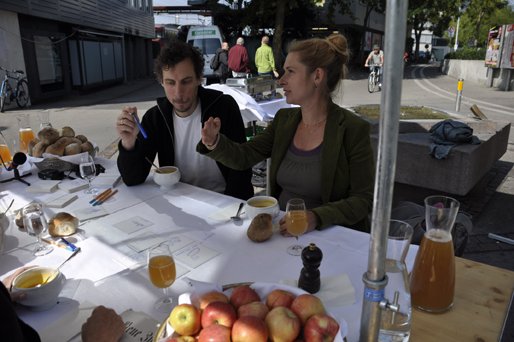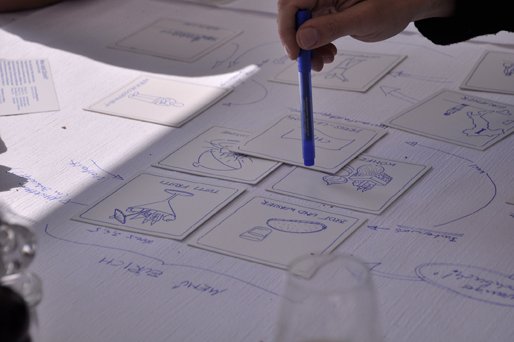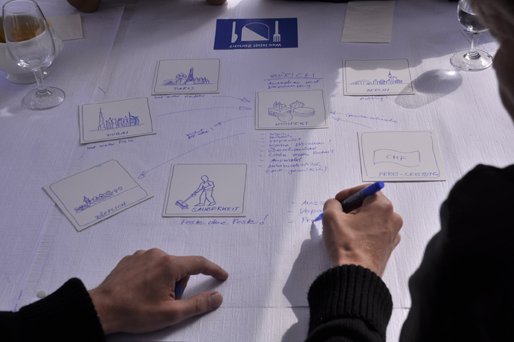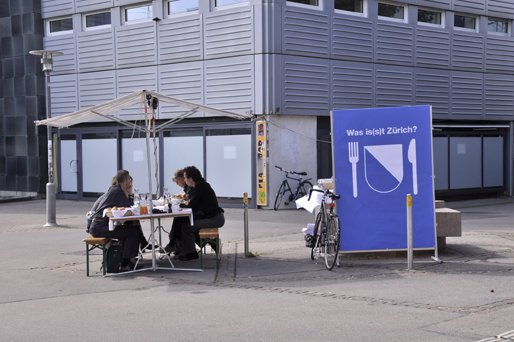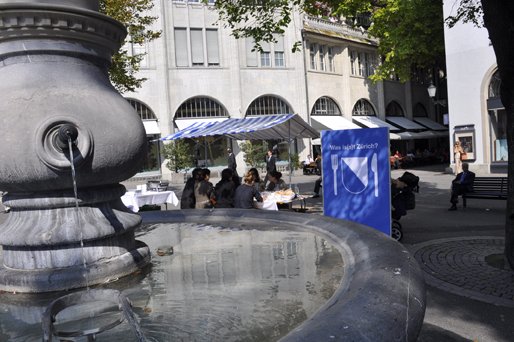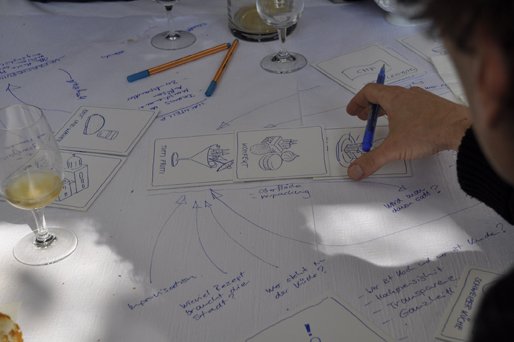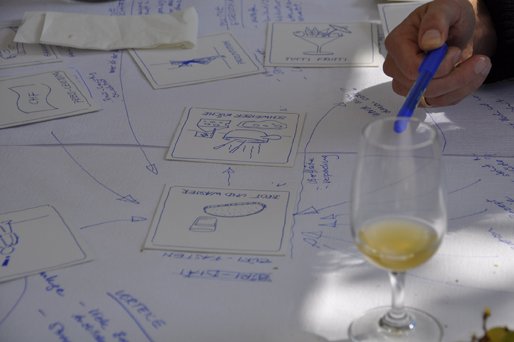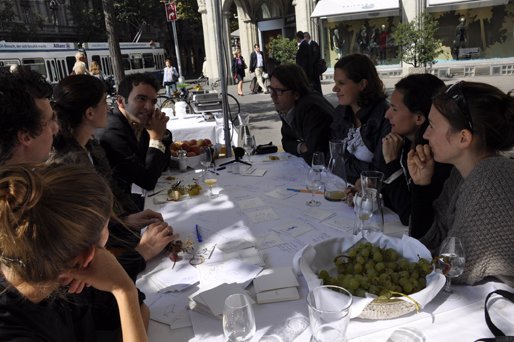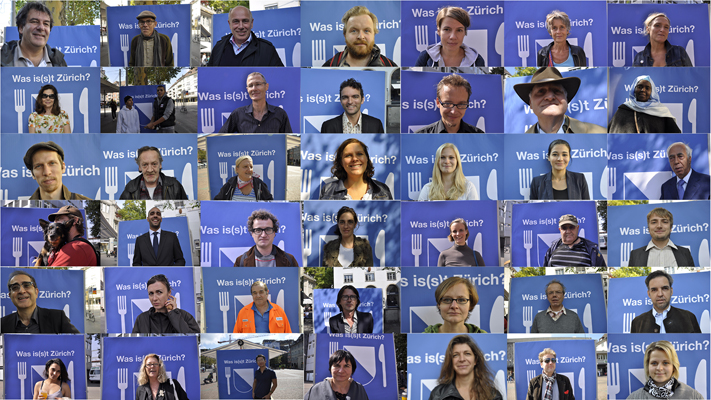Performative Inquiry in the Urban Space of Zurich into the Question “Was is(s)t Zürich?” (What is/eats Zurich)
From September 19 to 23, 2011, we created spaces in different parts of Zurich – Seefeldstrasse, the market place in the Oerlikon, Wiedikon train station, Langstrasse, and Züghusplatz – that invited passers-by to stop and tarry, to exchange a bowl of soup for a chat about what they thought of their city and to look for recipes for Zurich.
Between noon and 2 pm, lunch was served at a typical Zurich market stand in the form of bread and soup, while the lunchers discussed with Frank Rieniets whether Zurich could be compared with confectionary, haute cuisine, or sushi, whether it could be described with terms such as ratatouille or tutti-frutti or whether it would not be more suitable to prescribe a fasting of bread and water. On the spot, Tim Rieniets transformed these talks into visual maps of Zurich’s texture. Simultaneously, Imanuel Schipper conducted one-to-one interviews with passers by and video taped the residents’ recipes.
Presentation of Research Results of the City Installation “Alles muss Weg – 9 Tage urbaner Ausverkauf“ (Everything Must Go – 9 Days of Urban Sell-Off) in the Schiffbau
A week later, we presented our experiences with the performative inquiry “Was is(st) Zürich?” in the context of the city installation “Alles muss Weg – 9 Tage urbaner Ausverkauf“ in the Schauspielhaus Zurich’s Schiffbau as a performative market installation.
On September 29, 2011, visitors could experience the previously collected recipes taking turns at four different stands: One stand offered sushi, ratatouille, confectionary, bread, bismarks, and Quartiergeist, at another, visitors could experience the lunch table talk format live, the third produced their own contribution to the video archive, and at the fourth stand the visual maps of the collected recipes could be discussed. Between every turn, Zurich experts from different fields of expertise went up a podium speaker’s corner-style in the center of the circularly arranged market stands and gave the public space some input: Meret Schlegel (choreographer, Tanzhaus Zurich) contemplated the question “What moves Zurich”, Clemens Bellut (philosopher, ZHdK) “How can Zurich be conceived?”, Lino Sibelius (head of the Haus der Farben) “What color is Zurich?”, Jens Badura (philosopher, ZHdK) “What is Zurich?”, Simon Keller (project supervisor for over-all strategies of the Zurich City Department for Urban and Local Development) “What Zurich could be”, and Ray Herlitz (restaurant proprietor) “What Zurich eats”. Together, we watched the video-archived recipes at the end of the four turns.
Nightly Research Salons accompanying the Ciudades Paralelas Festival
On seven evenings, Research Salons and public talks were held in the festival center in the Schiffbau. Guests from academic and cultural backgrounds met with the artists of Ciudades Paralelas, exchanged their impressions about and thoughts of the recently visited places and discussed this special form of theater performance.
June 24 Lukas Bärfuss (author, Schauspielhaus Zurich) und Nikolaus Müller-Schöll (theater scholar, University of Hamburg) speak with Mariano Pensotti and Ligna
June 25 Martin Burckhardt (philosopher, Berlin) and Christopher Dell (musician and theorist of improvisation, Darmstadt) speak with Christian Garcia
June 27 Andres Bosshard (sound researcher and -composer, Zurich) and Philip Ursprung (art historian, ETH) speak with Ant Hampton
June 28 Christopher Henning (philosopher, University of St. Gall) and Clemens Bellut (philosopher, ZHdK) speak with Gerardo Naumann
June 29 Jens Badura (philosopher, ZHdK) and Angeli Janhsen (art historian, University of Freiburg) speak with Ligna und Lola Arias
June 30 Georg Christoph Tholen (media and art scholar, University of Basel) and Patrick Primavesi (theater scholar, University of Leipzig) speak with Dominic Huber
July 1 Miriam Drewes (theater scholar, University of Munich) speaks with Stefan Kaegi
Interdisciplinary Workshop
In the summer semester 2011, Tim Rieniets and Gabriela Muri held a workshop for ETH and ZHdK students from various disciplinary fields which was geared towards preparing the students for collecting information during selected urban space interventions by Ciudades Paralelas through empirical methods. The goal was finding answers to questions such as: Could urban space interventions be purposefully deployed to strengthen public spaces in the city? Which interventions would be most suited for this task? And how would urban or architectural space need to be constituted in order for the interventions to take their full effect?
Laboratory 1 Scenography
“Rem Koolhaas & Bernhard Tschumi. A Conversation moderated by Stephan Trüby with an introduction by Marc Angélil and Philip Ursprung“. Thus reads the title of the talk conducted by Stephan Trüby with two icons of the performative turn in architecture.
In a workshop within the MAS Spatial Desing (ZHdK) the following day, we discussed site-specific theater and performative turn after introductory speeches from Imanuel Schipper, Anne Kockelkorn (gta/ETH), Hannes Mayer (Archithese), and Johanna Dangel (WiMi Re/Okkupation).

